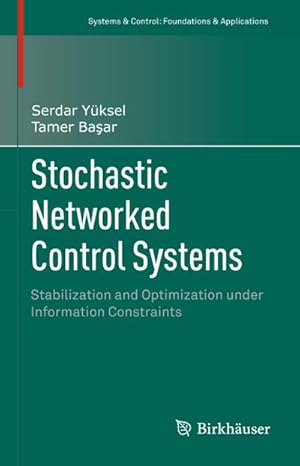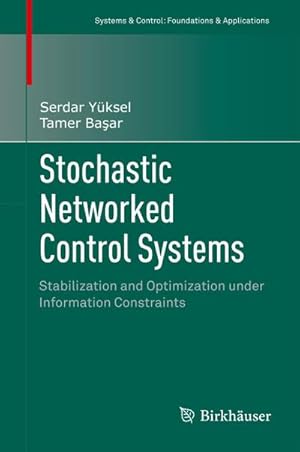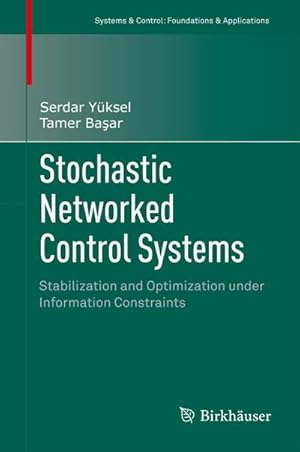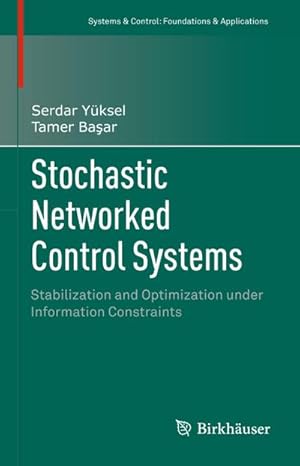Ba Ar Tamer (14 results)
Product Type
- All Product Types
- Books (14)
- Magazines & Periodicals
- Comics
- Sheet Music
- Art, Prints & Posters
- Photographs
- Maps
- Manuscripts & Paper Collectibles
Condition
Binding
Collectible Attributes
- First Edition (1)
- Signed
- Dust Jacket
- Seller-Supplied Images (8)
- Not Print on Demand (10)
Free Shipping
- Free US Shipping
Seller Location
Seller Rating
-
Dynamic games and applications in economics.
Published by Springer, 1986
ISBN 10: 3540164359ISBN 13: 9783540164357
Seller: Antiquariat Bookfarm, Löbnitz, Germany
Book
Ehem. Bibliotheksexemplar mit Signatur und Stempel. GUTER Zustand, ein paar Gebrauchsspuren. Ex-library with stamp and library-signature. GOOD condition, some traces of use. Sj 712 3540164359 Sprache: Englisch Gewicht in Gramm: 550.
-
Game Theory in Wireless and Communication Networks: Theory, Models, and Applications
Published by Cambridge University Press, 2012
ISBN 10: 0521196965ISBN 13: 9780521196963
Seller: Labyrinth Books, Princeton, NJ, U.S.A.
Book
Condition: Very Good.
-
Game Theory for Next Generation Wireless and Communication Networks: Modeling, Analysis, and Design
Published by Cambridge University Press, 2019
ISBN 10: 1108417337ISBN 13: 9781108417334
Seller: Prior Books Ltd, Cheltenham, United Kingdom
Book First Edition
Hardcover. Condition: Like New. First Edition. Firm, square and tight with sturdy hinges, just showing a few minor rubs and some mild cosmetic wear. Hence a non-text page is stamped 'damaged'. Despite such this book is in nearly new condition. Thus the contents are crisp, fresh and clean. Offered for sale at a very sensible price.
-
H?-Optimal Control and Related Minimax Design Problems
Published by Springer, 2008
ISBN 10: 0817647562ISBN 13: 9780817647568
Seller: Books Puddle, New York, NY, U.S.A.
Book
Condition: New. pp. 428 2nd Edition.
-
Stochastic Networked Control Systems : Stabilization and Optimization under Information Constraints
Published by Springer New York, 2013
ISBN 10: 1461470846ISBN 13: 9781461470847
Seller: Buchpark, Trebbin, Germany
Book
Condition: Sehr gut. Zustand: Sehr gut - Buchschnitt verkürzt- gepflegter, sauberer Zustand - Ausgabejahr 2013 | Seiten: 500 | Sprache: Englisch.
-
Dynamic Games and Applications in Economics
Published by Springer Berlin Heidelberg Mrz 1986, 1986
ISBN 10: 3540164359ISBN 13: 9783540164357
Seller: BuchWeltWeit Ludwig Meier e.K., Bergisch Gladbach, Germany
Book Print on Demand
Taschenbuch. Condition: Neu. This item is printed on demand - it takes 3-4 days longer - Neuware -This volume contains eleven articles which deal with different aspects of dynaoic and differential game theory and its applications in economic modeling and decision making. All but one of these were presented as invited papers in special sessions I organized at the 7th Annual Conference on Economic Dynamics and Control in London, England, during the period June 26-28, 1985. The first article, which comprises Chapter 1, provides a general introduction to the topic of dynamic and differential game theory, discusses various noncooperative equilibrium solution concepts, includ ing Nash, Stackelberg, and Consistent Conjectural Variations equilibria, and a number of issues such as feedback and time-consistency. The second chapter deals with the role of information in Nash equilibria and the role of leadership in Stackelberg problems. A special type of a Stackelberg problem is the one in which one dominant player (leader) acquires dynamic information involving the actions of the others (followers), and constructs policies (so-called incentives) which enforce a certain type of behavior on the followers; Chapter 3 deals with such a class of problems and presents some new theoretical results on the existence of affine incentive policies. The topic of Chapter 4 is the computation of equilibria in discounted stochastic dynamic games. Here, for problems with finite state and decision spaces, existing algorithms are reviewed, with a comparative study of their speeds of convergence, and a new algorithm for the computation of nonzero-sum game equilibria is presented. 308 pp. Englisch.
-
H?-Optimal Control and Related Minimax Design Problems
Published by Springer, 2008
ISBN 10: 0817647562ISBN 13: 9780817647568
Seller: Majestic Books, Hounslow, United Kingdom
Book
Condition: New. pp. 428 49:B&W 6.14 x 9.21 in or 234 x 156 mm (Royal 8vo) Perfect Bound on White w/Gloss Lam.
-
Dynamic Games and Applications in Economics
Published by Springer Berlin Heidelberg, 1986
ISBN 10: 3540164359ISBN 13: 9783540164357
Seller: AHA-BUCH GmbH, Einbeck, Germany
Book
Taschenbuch. Condition: Neu. Druck auf Anfrage Neuware - Printed after ordering - This volume contains eleven articles which deal with different aspects of dynaoic and differential game theory and its applications in economic modeling and decision making. All but one of these were presented as invited papers in special sessions I organized at the 7th Annual Conference on Economic Dynamics and Control in London, England, during the period June 26-28, 1985. The first article, which comprises Chapter 1, provides a general introduction to the topic of dynamic and differential game theory, discusses various noncooperative equilibrium solution concepts, includ ing Nash, Stackelberg, and Consistent Conjectural Variations equilibria, and a number of issues such as feedback and time-consistency. The second chapter deals with the role of information in Nash equilibria and the role of leadership in Stackelberg problems. A special type of a Stackelberg problem is the one in which one dominant player (leader) acquires dynamic information involving the actions of the others (followers), and constructs policies (so-called incentives) which enforce a certain type of behavior on the followers; Chapter 3 deals with such a class of problems and presents some new theoretical results on the existence of affine incentive policies. The topic of Chapter 4 is the computation of equilibria in discounted stochastic dynamic games. Here, for problems with finite state and decision spaces, existing algorithms are reviewed, with a comparative study of their speeds of convergence, and a new algorithm for the computation of nonzero-sum game equilibria is presented.
-
Stochastic Networked Control Systems
Published by Springer New York Jun 2015, 2015
ISBN 10: 1489992820ISBN 13: 9781489992826
Seller: BuchWeltWeit Ludwig Meier e.K., Bergisch Gladbach, Germany
Book Print on Demand
Taschenbuch. Condition: Neu. This item is printed on demand - it takes 3-4 days longer - Neuware -Networked control systems are increasingly ubiquitous today, with applications ranging from vehicle communication and adaptive power grids to space exploration and economics. The optimal design of such systems presents major challenges, requiring tools from various disciplines within applied mathematics such as decentralized control, stochastic control, information theory, and quantization. A thorough, self-contained book, Stochastic Networked Control Systems: Stabilization and Optimization under Information Constraints aims to connect these diverse disciplines with precision and rigor, while conveying design guidelines to controller architects. Unique in the literature, it lays a comprehensive theoretical foundation for the study of networked control systems, and introduces an array of concrete tools for work in the field. Salient features included: Characterization, comparison and optimal design of information structures in static and dynamic teams. Operational, structural and topological properties of information structures in optimal decision making, with a systematic program for generating optimal encoding and control policies. The notion of signaling, and its utilization in stabilization and optimization of decentralized control systems. Presentation of mathematical methods for stochastic stability of networked control systems using random-time, state-dependent drift conditions and martingale methods. Characterization and study of information channels leading to various forms of stochastic stability such as stationarity, ergodicity, and quadratic stability; and connections with information and quantization theories. Analysis of various classes of centralized and decentralized control systems. Jointly optimal design of encoding and control policies over various information channels and under general optimization criteria, including a detailed coverage of linear-quadratic-Gaussian models. Decentralized agreement and dynamic optimization under information constraints. This monograph is geared toward a broad audience of academic and industrial researchers interested in control theory, information theory, optimization, economics, and applied mathematics. It could likewise serve as a supplemental graduate text. The reader is expected to have some familiarity with linear systems, stochastic processes, and Markov chains, but the necessary background can also be acquired in part through the four appendices included at the end. Characterization, comparison and optimal design of information structures in static and dynamic teams. Operational, structural and topological properties of information structures in optimal decision making, with a systematic program for generating optimal encoding and control policies. The notion of signaling, and its utilization in stabilization and optimization of decentralized control systems. Presentation of mathematical methods for stochastic stability of networked control systems using random-time, state-dependent drift conditions and martingale methods. Characterization and study of information channels leading to various forms of stochastic stability such as stationarity, ergodicity, and quadratic stability; and connections with information and quantization theories. Analysis of various classes of centralized and decentralized control systems. Jointly optimal design of encoding and control policies over various information channels and under general optimization criteria, including a detailed coverage of linear-quadratic-Gaussian models. Decentralized agreement and dynamic optimization under information constraints. This monograph is geared toward a broad audience of academic and industrial researchers interes 500 pp. Englisch.
-
Network Security
Published by Cambridge University Press, 2016
ISBN 10: 0521119324ISBN 13: 9780521119320
Seller: moluna, Greven, Germany
Book Print on Demand
Condition: New. Dieser Artikel ist ein Print on Demand Artikel und wird nach Ihrer Bestellung fuer Sie gedruckt. Applies unique quantitative models derived from decision, control, and game theories to understanding diverse network security problems. Covering attack detection, malware response, algorithm and mechanism design, privacy, and risk management, this comprehe.
-
Stochastic Networked Control Systems
Published by Springer New York Mai 2013, 2013
ISBN 10: 1461470846ISBN 13: 9781461470847
Seller: BuchWeltWeit Ludwig Meier e.K., Bergisch Gladbach, Germany
Book Print on Demand
Buch. Condition: Neu. This item is printed on demand - it takes 3-4 days longer - Neuware -Networked control systems are increasingly ubiquitous today, with applications ranging from vehicle communication and adaptive power grids to space exploration and economics. The optimal design of such systems presents major challenges, requiring tools from various disciplines within applied mathematics such as decentralized control, stochastic control, information theory, and quantization. A thorough, self-contained book, Stochastic Networked Control Systems: Stabilization and Optimization under Information Constraints aims to connect these diverse disciplines with precision and rigor, while conveying design guidelines to controller architects. Unique in the literature, it lays a comprehensive theoretical foundation for the study of networked control systems, and introduces an array of concrete tools for work in the field. Salient features included: Characterization, comparison and optimal design of information structures in static and dynamic teams. Operational, structural and topological properties of information structures in optimal decision making, with a systematic program for generating optimal encoding and control policies. The notion of signaling, and its utilization in stabilization and optimization of decentralized control systems. Presentation of mathematical methods for stochastic stability of networked control systems using random-time, state-dependent drift conditions and martingale methods. Characterization and study of information channels leading to various forms of stochastic stability such as stationarity, ergodicity, and quadratic stability; and connections with information and quantization theories. Analysis of various classes of centralized and decentralized control systems. Jointly optimal design of encoding and control policies over various information channels and under general optimization criteria, including a detailed coverage of linear-quadratic-Gaussian models. Decentralized agreement and dynamic optimization under information constraints. This monograph is geared toward a broad audience of academic and industrial researchers interested in control theory, information theory, optimization, economics, and applied mathematics. It could likewise serve as a supplemental graduate text. The reader is expected to have some familiarity with linear systems, stochastic processes, and Markov chains, but the necessary background can also be acquired in part through the four appendices included at the end. Characterization, comparison and optimal design of information structures in static and dynamic teams. Operational, structural and topological properties of information structures in optimal decision making, with a systematic program for generating optimal encoding and control policies. The notion of signaling, and its utilization in stabilization and optimization of decentralized control systems. Presentation of mathematical methods for stochastic stability of networked control systems using random-time, state-dependent drift conditions and martingale methods. Characterization and study of information channels leading to various forms of stochastic stability such as stationarity, ergodicity, and quadratic stability; and connections with information and quantization theories. Analysis of various classes of centralized and decentralized control systems. Jointly optimal design of encoding and control policies over various information channels and under general optimization criteria, including a detailed coverage of linear-quadratic-Gaussian models. Decentralized agreement and dynamic optimization under information constraints. This monograph is geared toward a broad audience of academic and industrial researchers interes 500 pp. Englisch.
-
Stochastic Networked Control Systems : Stabilization and Optimization under Information Constraints
Published by Springer New York, 2013
ISBN 10: 1461470846ISBN 13: 9781461470847
Seller: AHA-BUCH GmbH, Einbeck, Germany
Book
Buch. Condition: Neu. Druck auf Anfrage Neuware - Printed after ordering - Networked control systems are increasingly ubiquitous today, with applications ranging from vehicle communication and adaptive power grids to space exploration and economics. The optimal design of such systems presents major challenges, requiring tools from various disciplines within applied mathematics such as decentralized control, stochastic control, information theory, and quantization. A thorough, self-contained book, Stochastic Networked Control Systems: Stabilization and Optimization under Information Constraints aims to connect these diverse disciplines with precision and rigor, while conveying design guidelines to controller architects. Unique in the literature, it lays a comprehensive theoretical foundation for the study of networked control systems, and introduces an array of concrete tools for work in the field. Salient features included: Characterization, comparison and optimal design of information structures in static and dynamic teams. Operational, structural and topological properties of information structures in optimal decision making, with a systematic program for generating optimal encoding and control policies. The notion of signaling, and its utilization in stabilization and optimization of decentralized control systems. Presentation of mathematical methods for stochastic stability of networked control systems using random-time, state-dependent drift conditions and martingale methods. Characterization and study of information channels leading to various forms of stochastic stability such as stationarity, ergodicity, and quadratic stability; and connections with information and quantization theories. Analysis of various classes of centralized and decentralized control systems. Jointly optimal design of encoding and control policies over various information channels and under general optimization criteria, including a detailed coverage of linear-quadratic-Gaussian models. Decentralized agreement and dynamic optimization under information constraints. This monograph is geared toward a broad audience of academic and industrial researchers interested in control theory, information theory, optimization, economics, and applied mathematics. It could likewise serve as a supplemental graduate text. The reader is expected to have some familiarity with linear systems, stochastic processes, and Markov chains, but the necessary background can also be acquired in part through the four appendices included at the end. Characterization, comparison and optimal design of information structures in static and dynamic teams. Operational, structural and topological properties of informationstructures in optimal decision making, with a systematic program for generating optimal encoding and control policies. The notion of signaling, and its utilization in stabilization and optimization of decentralized control systems. Presentation of mathematical methods for stochastic stability of networked control systems using random-time, state-dependent drift conditions and martingale methods. Characterization and study of information channels leading to various forms of stochastic stability such as stationarity, ergodicity, and quadratic stability; and connections with information and quantization theories. Analysis of various classes of centralized and decentralized control systems. Jointly optimal design of encoding and control policies over various information channels and under general optimization criteria, including a detailed coverage of linear-quadratic-Gaussian models. Decentralized agreement and dynamic optimization under information constraints. This monograph is geared toward a broad audience of academic and industrial researchers interest.
-
Stochastic Networked Control Systems : Stabilization and Optimization under Information Constraints
Published by Springer New York, 2015
ISBN 10: 1489992820ISBN 13: 9781489992826
Seller: AHA-BUCH GmbH, Einbeck, Germany
Book
Taschenbuch. Condition: Neu. Druck auf Anfrage Neuware - Printed after ordering - Networked control systems are increasingly ubiquitous today, with applications ranging from vehicle communication and adaptive power grids to space exploration and economics. The optimal design of such systems presents major challenges, requiring tools from various disciplines within applied mathematics such as decentralized control, stochastic control, information theory, and quantization. A thorough, self-contained book, Stochastic Networked Control Systems: Stabilization and Optimization under Information Constraints aims to connect these diverse disciplines with precision and rigor, while conveying design guidelines to controller architects. Unique in the literature, it lays a comprehensive theoretical foundation for the study of networked control systems, and introduces an array of concrete tools for work in the field. Salient features included: Characterization, comparison and optimal design of information structures in static and dynamic teams. Operational, structural and topological properties of information structures in optimal decision making, with a systematic program for generating optimal encoding and control policies. The notion of signaling, and its utilization in stabilization and optimization of decentralized control systems. Presentation of mathematical methods for stochastic stability of networked control systems using random-time, state-dependent drift conditions and martingale methods. Characterization and study of information channels leading to various forms of stochastic stability such as stationarity, ergodicity, and quadratic stability; and connections with information and quantization theories. Analysis of various classes of centralized and decentralized control systems. Jointly optimal design of encoding and control policies over various information channels and under general optimization criteria, including a detailed coverage of linear-quadratic-Gaussian models. Decentralized agreement and dynamic optimization under information constraints. This monograph is geared toward a broad audience of academic and industrial researchers interested in control theory, information theory, optimization, economics, and applied mathematics. It could likewise serve as a supplemental graduate text. The reader is expected to have some familiarity with linear systems, stochastic processes, and Markov chains, but the necessary background can also be acquired in part through the four appendices included at the end. Characterization, comparison and optimal design of information structures in static and dynamic teams. Operational, structural and topological properties of informationstructures in optimal decision making, with a systematic program for generating optimal encoding and control policies. The notion of signaling, and its utilization in stabilization and optimization of decentralized control systems. Presentation of mathematical methods for stochastic stability of networked control systems using random-time, state-dependent drift conditions and martingale methods. Characterization and study of information channels leading to various forms of stochastic stability such as stationarity, ergodicity, and quadratic stability; and connections with information and quantization theories. Analysis of various classes of centralized and decentralized control systems. Jointly optimal design of encoding and control policies over various information channels and under general optimization criteria, including a detailed coverage of linear-quadratic-Gaussian models. Decentralized agreement and dynamic optimization under information constraints. This monograph is geared toward a broad audience of academic and industrial researchers interest.
-
Game Theory in Wireless and Communication Networks: Theory, Models, and Applications
Published by Cambridge University Press, 2012
ISBN 10: 0521196965ISBN 13: 9780521196963
Seller: Mispah books, Redhill, SURRE, United Kingdom
Book
Hardcover. Condition: Like New. Like New. book.













